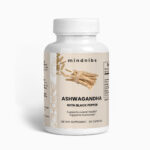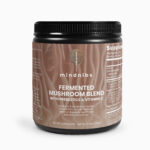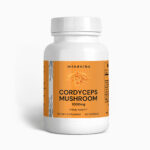
“Taking on Hypertension: Can Supplements Help Control Blood Pressure?”
Hypertension, commonly known as high blood pressure, affects millions of individuals worldwide. According to research, hypertension is a primary cause of cardiovascular diseases and can lead to severe health issues such as heart attack and stroke. Most people opt for prescribed medication to manage their blood pressure levels, but can supplements help? This article aims to investigate and provide insight into the effectiveness of supplements in controlling hypertension. We will explore various dietary supplements and analyze their effectiveness in treating hypertension, as well as addressing some key questions about supplements that may cause confusion. By the end of this article, we hope it will encourage you to consider these alternative options in managing your blood pressure and ultimately improving your overall health.
1. Introduction: Understanding Hypertension and Its Impact on Health
High blood pressure, commonly known as hypertension, is a serious condition that affects millions of people worldwide. It is considered one of the leading causes of death globally. Hypertension is a chronic medical disorder that occurs when the force of blood against the artery walls is too high, which can lead to damage to the heart, brain, and other organs.
This condition is often referred to as the “silent killer” due to its lack of symptoms in many cases. Individuals with hypertension are at increased risk of heart disease, stroke, kidney failure, and other health problems. Fortunately, hypertension is a treatable condition, and with proper management, individuals can lead healthy, full lives.
It is essential to understand the impact of hypertension on overall health and well-being. The condition affects various body systems, including the cardiovascular, nervous, and renal systems. Individuals with hypertension often experience fatigue, headaches, dizziness, and shortness of breath. They are also more prone to heart attacks, strokes, and other health complications.
There are several risk factors for hypertension, including obesity, smoking, alcohol consumption, lack of exercise, and high salt intake. It is crucial to manage these risk factors to prevent or manage hypertension. Individuals who have been diagnosed with hypertension can take steps to control their blood pressure levels, such as reducing salt intake, exercising regularly, quitting smoking, and taking hypertension medication as prescribed by their doctor.
- Hypertension is a severe health condition that affects millions of people worldwide.
- It is essential to understand the impact of hypertension on overall health and well-being.
- There are several risk factors for hypertension, including obesity, smoking, alcohol consumption, lack of exercise, and high salt intake.

2. The Role of Supplements in Controlling High Blood Pressure
Supplements have recently become a popular alternative for managing high blood pressure. While no supplement can replace a healthy diet and lifestyle, adding certain supplements to your routine can be beneficial in reducing hypertension.
One supplement that has been proven to be effective in managing high blood pressure is potassium. Potassium supplements help to balance out the sodium levels in your body, which can lead to a decrease in blood pressure. Good sources of potassium supplements include bananas, spinach, and sweet potatoes.
An Omega-3 fatty acid supplement is also beneficial in managing high blood pressure. Omega-3 supplements help to reduce inflammation and lower blood pressure. Sources of Omega-3 include fish oil supplements, flaxseeds, and chia seeds. Adding these supplements to your diet can be a natural way of controlling your hypertension.
- Important: It is important to consult with your doctor before taking any supplements as they may interact with other medications you are taking or complicate any existing health conditions you may have.
- Quick Reminder: Supplements are not a replacement for a healthy diet and lifestyle. It’s important to maintain a healthy weight, decrease salt intake, and regular exercise to manage high blood pressure effectively.

3. Finding the Right Supplements for Hypertension: A Guide
As high blood pressure or hypertension is a chronic medical condition, it requires careful management. And one way to manage hypertension is by taking supplements. However, it is critical to choose the right supplements for optimal management of hypertension. Here is a guide to help you choose the right supplements to manage your hypertension.
1. Consult with your doctor:
The first step in finding the right supplement for hypertension management is to speak to your doctor. Your doctor will review your medical history and current health condition and recommend the appropriate supplements. This will help you avoid taking supplements that might conflict with your medication or health condition. It is crucial to choose a supplement that complements your current medication and does not interfere with any of the existing treatment plans.
2. Choose supplements proven to lower blood pressure:
You must check the supplements label before making your purchase. Only buy supplements that have proven clinical results or are backed by scientific evidence to lower blood pressure levels. Some commonly known supplements with this effect are magnesium, fish oil, and coenzyme Q10 (CoQ10).
3. Avoid supplements with added sugars and preservatives:
When buying supplements, it is important to avoid buying those with added sugars, preservatives, and artificial colors or flavors. Most supplements that come in flavors contain added sugars, which can increase your blood pressure levels and cause other health issues. Be sure to carefully review the ingredients of the supplement and choose those that contain natural and healthy ingredients.

4. The Benefits of Natural Supplements for Blood Pressure Control
There is no denying that blood pressure management is crucial for maintaining overall health and well-being. While some may resort to prescription medications for regulating blood pressure, natural supplements present an effective and safe alternative with a range of benefits.
- Reduced Risk of Side Effects: Unlike prescription medications, natural supplements usually come with minimal side effects. They are also typically well-tolerated by most individuals, making them a safer option for long-term use.
- Improved Heart Health: Several natural supplements, such as omega-3 fatty acids and garlic extract, have been found to improve heart health by reducing inflammation and promoting healthy blood flow. This can help reduce the risk of heart conditions associated with high blood pressure.
- Cost-Effective: Natural supplements are often less expensive than prescription medications, making them a budget-friendly option. Additionally, many health insurance plans do not cover prescription medications for blood pressure, making natural supplements a more accessible choice for many individuals.
Natural supplements can be an effective tool in blood pressure management, but it is important to note that they should not replace the advice and treatment of a medical professional. It is also important to do thorough research and consult with a healthcare provider before choosing a supplement, as some may interact with prescription medications or have unwanted side effects.
In conclusion, natural supplements can provide a range of benefits for managing blood pressure, including reduced risk of side effects, improved heart health, and affordability. By incorporating these supplements into a healthy lifestyle and working with a healthcare provider, individuals can take an active role in their blood pressure management and overall health.

5. How Supplements Work to Regulate Blood Pressure
Supplements can be a great addition to your diet if you’re trying to regulate your blood pressure. Here are some ways supplements can help:
- Potassium: Potassium supplements can help regulate blood pressure by counteracting the effects of sodium in your diet. When you eat foods high in sodium, your body may retain more water, which can increase your blood pressure. Potassium helps flush out excess sodium and water from your body, helping to lower your blood pressure. Good sources of potassium include bananas, potatoes, and spinach.
- Magnesium: Magnesium is another mineral that can help regulate blood pressure. Some studies suggest that magnesium supplements can reduce blood pressure in people with hypertension. Additionally, magnesium helps your blood vessels relax, which can also help lower your blood pressure. Good sources of magnesium include nuts, seeds, and whole grains.
- Fiber: Getting enough fiber in your diet can also help regulate your blood pressure. High-fiber diets have been shown to reduce blood pressure in people with hypertension. Additionally, fiber can help reduce your risk of developing other conditions that can contribute to high blood pressure, such as obesity and diabetes. Good sources of fiber include fruits, vegetables, and whole grains. Consider taking a fiber supplement if you have trouble getting enough fiber in your diet.
In conclusion, supplements can be a great addition to your diet if you’re trying to regulate your blood pressure. Potassium, magnesium, and fiber supplements can help reduce your blood pressure and lower your risk of developing other conditions that can contribute to hypertension. Consider talking to your doctor or a qualified nutritionist to determine the best supplement regimen for your needs.
6. Potential Risks and Side Effects of Hypertension Supplements
While hypertension supplements can be helpful in managing blood pressure, they also come with potential risks and side effects that cannot be overlooked. It is important to understand these risks before starting a supplement regimen for hypertension.
- Some supplements can interact with prescription medication, causing adverse effects or decreasing the effectiveness of medication.
- Supplements can also cause allergic reactions or side effects such as nausea, vomiting, and headache.
- In rare cases, high doses of supplements can cause harmful effects such as liver or kidney damage.
It is important to speak with a healthcare professional before starting any supplement regimen, especially if you have pre-existing medical conditions or are taking prescription medication. They can help you determine if hypertension supplements are safe for you and can recommend specific supplements that would be most beneficial.
Additionally, it is important to carefully read and follow dosage instructions on supplement labels to avoid the risk of harmful side effects.
In conclusion, while hypertension supplements can be a valuable addition to managing blood pressure, they also come with potential risks and side effects that should not be ignored. Consulting with a healthcare professional and following dosage instructions can help mitigate these risks and ensure safe and effective use of hypertension supplements.
7. Conclusion: Choosing Supplements as Part of a Comprehensive Hypertension Management Plan
When it comes to managing hypertension, there are a number of lifestyle changes you can make to keep your blood pressure under control. From eating a healthy, low-sodium diet to getting plenty of exercise, these changes can help lower your risk of heart disease, stroke, and kidney problems.
- However, for some people, lifestyle changes alone may not be enough to manage their hypertension. In these cases, supplements can be a useful addition to a comprehensive hypertension management plan.
- While there’s no magic bullet when it comes to hypertension, there are a number of supplements that have been shown to help reduce blood pressure naturally. Some of the most promising include omega-3 fatty acids, magnesium, and coenzyme Q10.
It’s important to note that while supplements can be helpful, they should never replace prescribed medication or lifestyle changes. If you’re considering adding supplements to your hypertension management plan, be sure to talk to your doctor first. With the right approach, you can help manage your blood pressure and reduce the risk of serious health problems.
Taking on hypertension might seem like an uphill battle, but the good news is that there are supplements out there that can help you control your blood pressure. With proper research, dietary and lifestyle changes, you can achieve and maintain a healthy blood pressure level. With commitment and proper supplementing, you can make a big difference in your overall health and well-being. It’s time to take on hypertension and get your blood pressure under control.

























